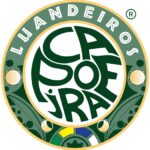His first experience with Capoeira was in 1996 back in his hometown Salvador, Bahia in São Gonçalo neighborhood where he lived and afterwards worked as a Capoeira coach until 1999 in the elementary school.
Alex Nascimento (aka Mestre Caranga) always had the dream to become a Capoeira teacher and support his parents as they struggled with financial difficulties.
– Professor CARANGA CRONOLOGY –
* 1999 – Joined the group of Capoeira Luanda of Mestre Eziquiel.
* 2001 – Started to teach Capoeira for children in the Alianca dos Cegos Academy. Through the supervision of his teacher at that time ‘Mestre Jacarandá’ and the monitoring of ‘Formado Perú’.
About that time Mestre Caranga says that it was when his first contact with the “true Capoeira” began.
* 2002 – Started to teach Capoeira at the Alberto Valenca High School as part of the Unesco project. In the same year he joined the forum of the Capoeira at the Federal University in Bahia.
* 2003 – was a difficult stage in the life of Professor Caranga as he lost an important person in his life, his mother.
In 2003 Alex (Caranga) had the opportunity to study in one of the best schools, the Colegio Luiz Eduardo Magalhaes.
Between 2003 and 2004, he began to give Capoeira lessons again within the framework of the UN project and earned a certificate from the Bahian government on 18.12.2003 as he had worked as a coach of Oficina de Capoeira.
* 2005 – played Capoeira with the already deceased Mestre Mica and Mestre Macaco Negao in the historic center of Pelourinho on the Terreiro de Jesus as a teacher for foreigners. He also took part in Rodas de Capoeira in the Mercado Modelo with Mestre Gajé and then went to Itacaré.
* 2006 – Started teaching Capoeira Itacaré, Bahia. He taught Capoeira to tourists from different countries such as Italy, France, Denmark, Africa, Korea, USA, Argentina, Switzerland, Israel, Japan, China, Spain and many others. He then started performing in a Capoeira show group.
* 2007 – Moved to Germany to teach Capoeira. His first pupils were John (Panteira Luanda), a man who works with mosaic and his son Jonas (Trovao Luanda). Afterwards, Maximilian (Lampiao Luanda) took part and every month more people entered the group.
* 2009 – Started to teach Capoeira lessons at the youth center in Engter, but in the same year moved to the city of Osnabrück. There he taught at an Asian sports academy and then at the youth center in Eversburg.
He currently teaches Capoeira in Osnabrück and also supervises and monitor his other capoeira schools and is the CEO of the Osnabrueck Sportzentrum with many other modalities other than Capoeira.
